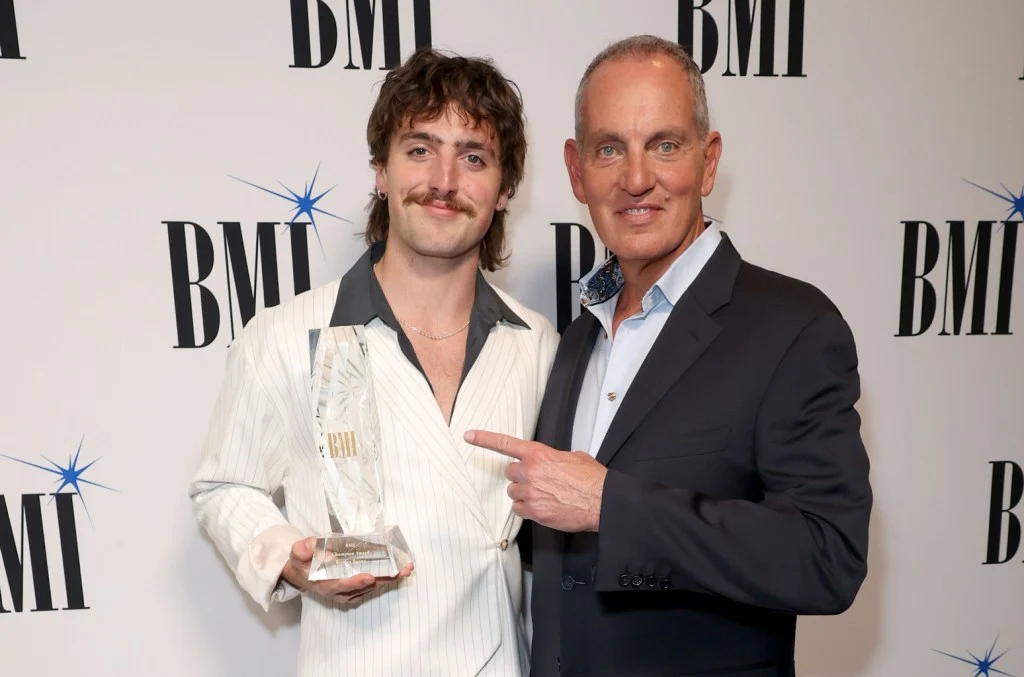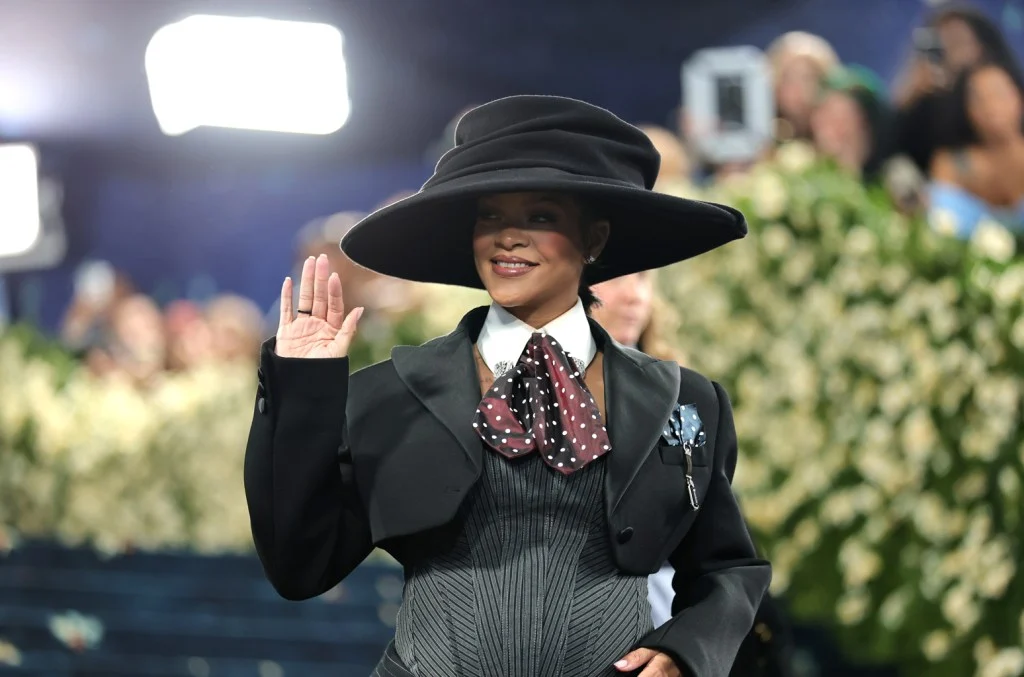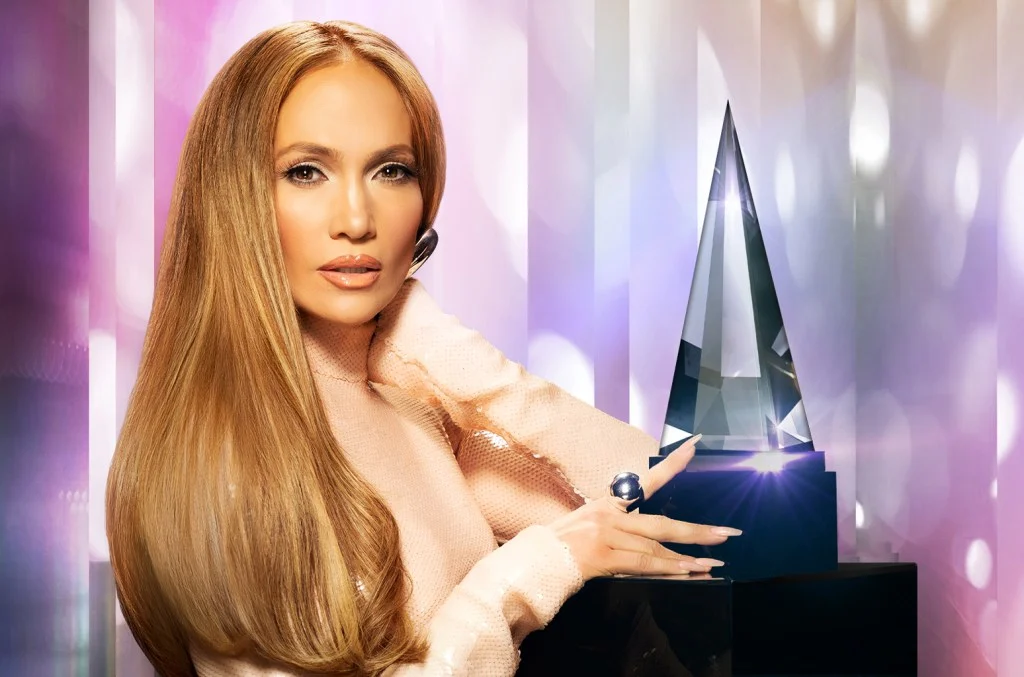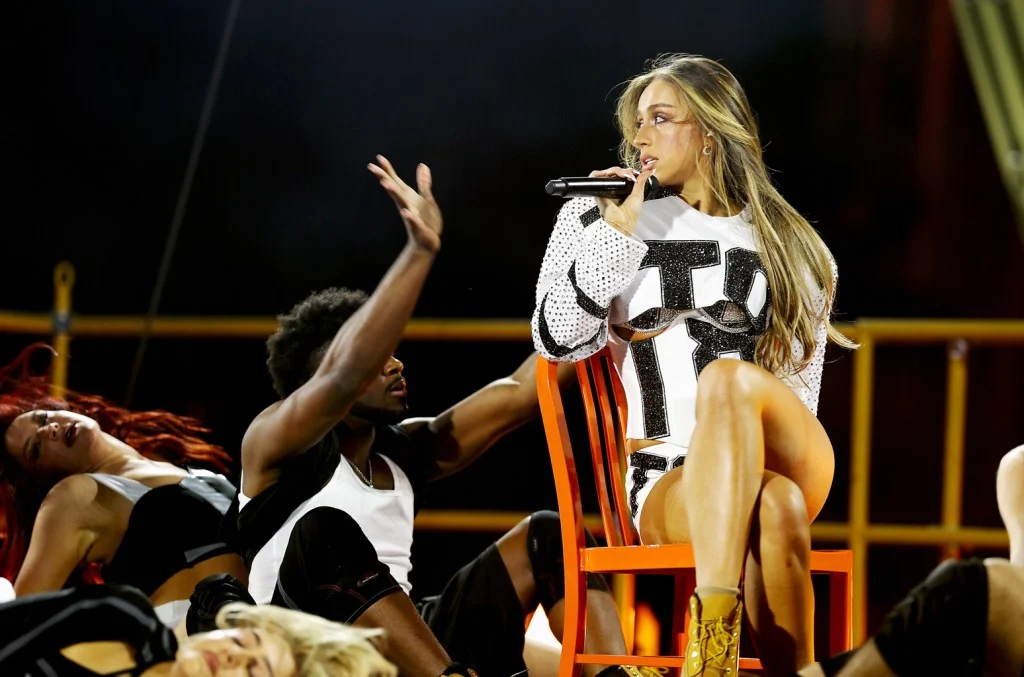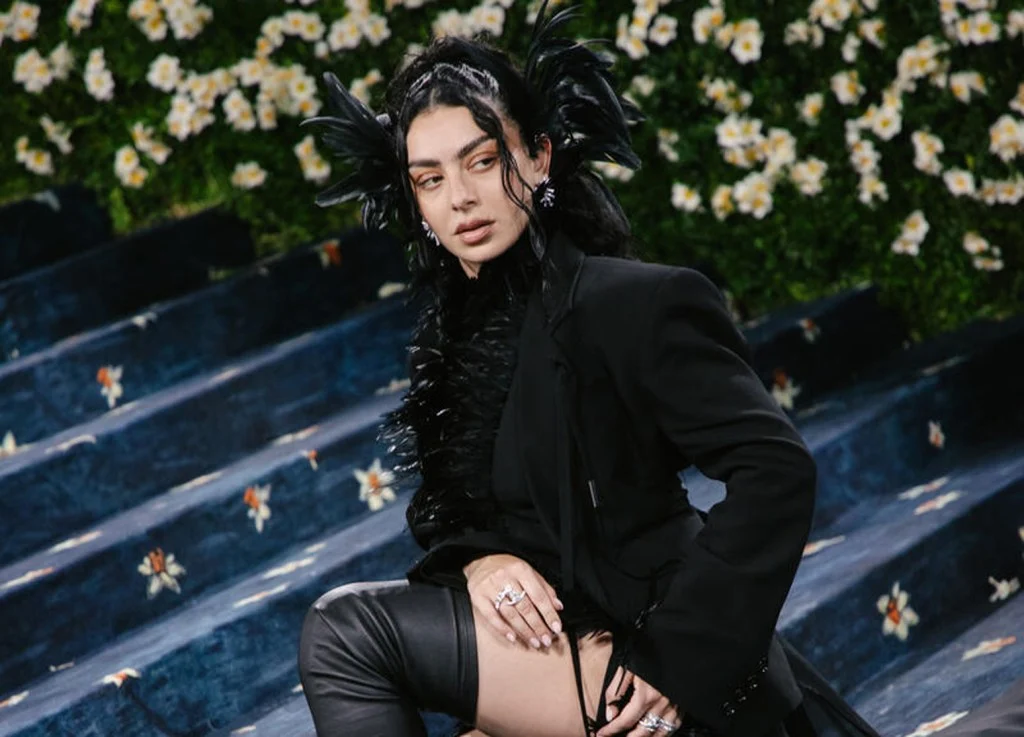genre pop
Page: 69

Charli xcx is ready to throw a party 4 her fourth studio album, How I’m Feeling Now, which celebrates its fifth birthday Thursday (May 15) amid the viral resurgence of one of its tracks — for which the musician has announced a new music video.
In a heartfelt handwritten letter posted to Instagram Wednesday (May 14), the pop star first opened up about crafting her 2020 LP, the release of which she wrote “honestly just feels like yesterday.” “So much has changed since then: me, my life, elements of my music and most definitely the world,” Charli wrote.
“I made the album in just five weeks, from conception to release, entirely publicly in collaboration with all of you,” she continued of crafting the album at the height of the COVID-19 pandemic. “It was so special. I felt like I rediscovered myself, my sanity + my sense of connection with the world, at a time where we were all so alone.”
Trending on Billboard
Though far from her most commercially successful, How I’m Feeling Now is one of Charli’s most beloved works among her fanbase. Released four years before she’d experience a career breakthrough with 2024 year-defining album Brat, the LP peaked at No. 111 on the Billboard 200.
In recent months, however, the album has undergone a renaissance thanks to one of its tracks in particular: “party 4 u,” which made its Billboard Hot 100 in early May a full five years after its release after going viral on TikTok. On the chart dated May 17, 2025, it reached a new peak at No. 55.
With the well-timed retroactive success of “party 4 u,” Charli went on to announce Wednesday that she has a music video in the works for the half-decade-old track. Sharing a seconds-long closeup of her eyes paired with a snippet of the song, she wrote on her social media accounts, “5 years later… the party 4 u video. tomorrow.”
The news comes shortly after she shared a clip of herself running down an empty street while holding a bushel of pink balloons — a direct reference to one of the song’s lyrics — on TikTok. And in her handwritten note, the Essex-born star had hinted, “I really can’t believe that 5 years later one of the Angel favorites is having its own special moment.”
“So obviously I wanted to do something to celebrate…,” she’d continued. “This one’s for you Angels.”
The How I’m Feeling Now anniversary comes just a few weeks after Charli performed at Coachella 2025, incorporating “party 4 u” into her Weekend 2 setlist. The weekend prior, she brought Lorde, Troye Sivan and Billie Eilish on stage with her to perform their respective Brat remix collaborations: “Girl, So Confusing,” “Talk Talk” and “Guess.”
Charli is now fresh off of four nights at Barclay’s Center in Brooklyn, N.Y., on her own headlining Brat Tour. She’ll next embark on a European leg starting May 31 in Poland.
See her post about How I’m Feeling Now‘s anniversary below.
Benson Boone, Taylor Swift and Teddy Swims took top honors at the 2025 BMI Pop Awards, which were held on Tuesday (May 13) at the Beverly Wilshire Hotel in Beverly Hills, Calif. The private event was hosted by Mike O’Neill, BMI president & CEO; Barbara Cane, vp of worldwide creative; Samantha Cox, vp of creative, NY; and Tracie Verlinde, vp.
Boone was presented with the BMI Champion Award by O’Neill, who praised his “boundless talent and creativity.” Previous recipients include Peso Pluma, SZA, Jonathan McReynolds, Khalid, Mark Ronson, Residente, Sebastian Krys, Keith Urban and Lee Thomas Miller.
Trending on Billboard
After receiving the award, Boone thanked BMI, his team, family and the songwriters in the room, sharing “This is not my award, this is for everyone who has been a part of working on this project. To the songwriters, producers, to my mother and father… to my label to Warner Chappell, to everyone who has played a part… it takes a huge powerhouse of a team to do what I’m trying to do, and I have a wonderful team.”
Boone also paid tribute to his cowriter and collaborator Jack LaFrantz, sharing, “If you’re a songwriter or producing or have anything to do with the creation process of music, you understand how incredible it is when you find someone you really like to work with and work well with. I would just like to give a special thank you to Mr. Jack LaFrantz. Any of these songs that you hear you would not be hearing them without him. If you’re trying to release songs, find people that you love and make it something that you love. I promise you it is the best thing ever when you find gold in the room.”
Boone then took to the stage for an intimate three-song performance backed by piano. He started off with “Slow it Down,” followed by “Drunk in My Mind” and “Beautiful Things.”
In addition to his BMI Champion honor, Boone received two BMI Pop Awards for “Beautiful Things” and “Slow It Down,” with co-writer LaFrantz. The backflipping singer-songwriter received his first BMI Pop award in 2023 for “GHOST TOWN.”
Swift was named BMI’s Pop Songwriter of the Year, which ups her collection of BMI Awards to a staggering 72 – including the BMI President’s Award in 2009 and the BMI Taylor Swift Award in 2016.
This was the second year in a row Swift has been named Pop Songwriter of the Year. She co-wrote seven of the previous year’s most-performed songs: “Don’t Blame Me,” “Down Bad,” “Fortnight,” “I Can Do It with a Broken Heart,” “Is It Over Now?,” “Now That We Don’t Talk,” and “Who’s Afraid of Little Old Me?.”
BMI’s Pop Song of the Year went to “Lose Control” written and performed by Teddy Swims with BMI co-writers Julian Bunetta, Marco “Infamous” Rodriguez and Mikky Ekko. The smash hit has spent a record-breaking 60 nonconsecutive weeks in the top 10 of the Billboard Hot 100, reaching No. 1 in March 2024.
Universal Music Publishing Group was named Publisher of the Year for representing 28 of the previous year’s most performed songs, including “Agora Hills” performed by Doja Cat, “Espresso” performed by Sabrina Carpenter and “Houdini” by Eminem.
Throughout the ceremony, the 50 most-performed pop songs of the previous year in the U.S. were also awarded. BMI welcomed 61 first-time Pop Award winners, including J. Cole for “All My Life” by Lil Durk, Jesse Fink; Peter Finn for “Stargazing” performed by Myles Smith; Djo for “End of Beginning”; and Nevin Sastry for “A Bar Song (Tipsy)” by Shaboozey. This also marked the first BMI Pop award for country superstar Morgan Wallen for “I Had Some Help,” co-written with Charlie Handsome and other first-time BMI Pop winners Hoskins, ERNEST and Chandler Paul Walters.
For a full list of the 2024 honorees, visit the BMI site.

Celine Dion went back to the start on Tuesday (May 13). The singer sent a surprise video to the 2025 Eurovision Song Contest expressing her gratitude and love for the singers, organizers and viewers during the first semi-final round.
“Dear Eurovision family and contestants. I’d love nothing more than to be with you in Basel right now. Switzerland will forever hold a special place in my heart. It’s a country that believed in me and gave me the chance to be part of something so extraordinary,” Dion, 57, said in the video that was broadcast on a big screen on the main stage on Tuesday night.
“Winning the Eurovision song contest for Switzerland in 1988 was a life-changing moment for me and I’m so thankful for everyone who supported me,” she continued. “Now, 37 years later, it’s so beautiful and emotional to see Switzerland winning and hosting this incredible event once again. To the people of Switzerland, thank you for your love. This night is yours and I hope you feel as proud as I do.”
Trending on Billboard
Before she became a global phenomenon, Dion won the Eurovision Contest representing Switzerland in 1988 with the song “Ne partez pas sans moi.” Dion, who had already released more than half a dozen French-language albums at that point, issued her first English-language LP, Unison, two years later, in 1990.
Her message also included a French-language portion in which she said, “Music unites us, not only this evening, not only at the moment. Wonderful. It is our strength, our support and our support in the moments where we need it. I love you all, Europe and the rest of the world, of course. Kisses, I love you.”
Among the acts who made it through during Tuesday’s cut-down round are Norway’s Kyle Alessandro, Albania’s Shkodra Elektronike, Sweden’s KAJ, Iceland’s VÆB, the Netherlands’ Claude, Poland’s Justyna Steczkowska, San Marino’s Gabry Ponte, Estonia’s Tommy Cash, Portugal’s NAPA and Ukraine’s Ziferblat, with Azerbaijan, Belgium, Cyprus, Croatia and Slovenia getting eliminated. The next semi-final round will take place on Thursday (May 15) and feature performances from Armenia, Australia, Austria, Czechia, Denmark, Finland, Georgia, Greece, Ireland, Israel, Latvia, Lithuania, Luxembourg, Malta, Montenegro, Serbia, and the United Kingdom, with the top 10 advancing to the Grand Final.
According to CNN, after the Dion message aired a number of singers from last year’s contest performed a cover of the diva’s winning song from 1988.
The video from Dion was her latest appearance in the wake of a long lay-off due to the singer’s battle with the rare neurological disorder Stiff-Person Syndrome, which caused her to call off all live dates and resulted in a retreat from the spotlight for nearly two years as she battled the debilitating effects of the disorder. She made her triumphant return to the spotlight last summer when she performed at the opening ceremony of the Summer Olympics.
Check out Dion’s message below.
Rihanna fans who are desperate for new music don’t need to feel blue any longer — the superstar finally has a new song coming out soon, recorded for the Smurfs movie soundtrack.
As revealed Wednesday (May 14) with the release of the film’s new trailer, Ri will drop a track called “Friend of Mine” on Friday (May 16). The teaser also features snippets of the song, which finds the Fenty mogul singing over a dreamy Afrobeats-inspired dance track, “You’re looking like a friend of mine.”
Starring Ri as the voice of Smurfette opposite John Goodman, James Corden, Nick Offerman, Sandra Oh and more, the Smurfs movie is set to hit theaters July 18. In addition to the “Umbrella” singer’s new song, its soundtrack will also feature Tyla as well as a song called “Higher Love” by DJ Khaled, Cardi B and DESI TRILL, which dropped in February.
Trending on Billboard
The new teaser opens with a shot of Rihanna — aptly wearing a blue jacket and blue beads in her hair — dancing in the studio as she records some of Smurfette’s lines. It then shows a preview of the film’s storyline, with the residents of Smurf Village traveling to the real world to save Papa Smurf (Goodman) after he’s kidnapped by evil wizard Gargamel (J. P. Karliak).
In addition to starring and singing in the film, Ri also served as an executive producer on the latest addition to the Smurfs franchise. While announcing the project back in 2023 at that year’s CinemaCon alongside Paramount and Nickelodeon, the musician — who was pregnant with second son Riot Rose at the time — said, “I get to show up in my PJs in my third trimester … I hope this gives me cool points with my kids one day.”
“Friend of Mine” will mark Ri’s first release since 2022’s “Lift Me Up” from the Black Panther: Wakanda Forever soundtrack. She hasn’t dropped an album since 2016’s Anti, which spent two weeks at No. 1 on the Billboard 200.
The new trailer comes a week after Ri attended the Met Gala with partner A$AP Rocky, who was one of the event’s co-chairs this year. On the red carpet, she showed off her baby bump, revealing that she’s expecting her third child with the rapper.
And though fans have been waiting for a new Rihanna album for nine years at this point, the musician says that her latest pregnancy isn’t going to stop her from working on Anti‘s follow-up. “Noooooo!” she told Entertainment Tonight when asked whether that would be the case on the Met red carpet May 5. “Maybe a couple videos! I can still sing!”
Watch the new Smurfs trailer and listen for snippets of Ri’s new song “Friend of Mine” below.
Jennifer Lopez is known for giving her all. But it looks like she might have given too much during rehearsals for her upcoming gig hosting the 2025 American Music Awards. On Tuesday (May 13), the singer/actress posted a series of pictures on her Instagram Story chronicling a nasty workplace injury she suffered during walk-throughs for […]
Sandra Oh, Brenda Song, Jon M. Chu, Laufey and more shared life lessons with those pursuing their dreams during a camera-lens signing on the Gold Gala red carpet. Daniel Dae Kim: A lesson I’d like to give the next generation. Tayme Thapthimthong: I guess I’m an example of someone who you know I came from, […]
Tate McRae was in a Folklore mood ahead of her Miss Possessive Tour show in Stuttgart, Germany, with the star choosing a deep cut from the fan-favorite Taylor Swift album to cover during soundcheck on Tuesday (May 13).
In a clip taken by a fan in the audience, McRae sits casually on a stool in bright blue track pants, reading lyrics off her phone. Accompanied by a gentle acoustic guitar, the Canadian singer-songwriter softly puts her own spin on the introspective post-breakup ballad “The 1,” crooning, “I have this dream you’re doing cool sh–/ Having adventures on your own/ You meet some woman on the Internet and take her home.”
“But we were something, don’t you think so?/ Roaring 20s, tossing pennies in the pool,” she continues, adding her own subtle changes to the melody on the song’s chorus. “And if my wishes came true/ It would’ve been you.”
Trending on Billboard
Released in 2020 along with the rest of Folklore, “The 1” is the very first song on the album’s track list. It debuted at No. 4 on the Billboard Hot 100, and Folklore would later take home album of the year at the 2021 Grammys.
McRae’s covers have become a tradition during her soundchecks before concerts. She also performed Billie Eilish’s “Birds of a Feather,” Olivia Rodrigo’s “Pretty Isn’t Pretty” and Morgan Wallen and Post Malone’s “I Had Some Help” at various shows on her 2024 Think Later trek.
The “Greedy” singer is currently touring in support of her 2025 album So Close to What, which debuted atop the Billboard 200 — McRae’s first-ever No. 1 album. The project features Hot 100 hits “Sports Car,” “Revolving Door,” “2 Hands” and “It’s OK I’m OK.”
Following her show in Germany, McRae will next perform in Antwerp, Belgium, followed by venues in Dublin, London, Paris and more cities throughout Europe. She’ll later kick off a North American leg in August, closing out Nov. 8 at the Kia Forum in Inglewood, Calif.
Reneé Rapp is finally getting ready to sink her teeth into her next era. After two years of keeping fans waiting for new music, the singer-songwriter has revealed that she has a new song titled “Bite Me” arriving later this month.
In a saucy video posted to her social media accounts Tuesday (May 13), Rapp faces away from the camera while flexing both of her biceps, her long blonde hair falling down her bare back as she forgoes a shirt or bra. Shaking her head, the Mean Girls actress shows off a backwards baseball cap that reads, “Bite Me.”
Rapp also paired the clip with a snippet of the new song, which finds her purring over a slinking beat, “I’m a real bad girl, but a real good kisser.”
Trending on Billboard
The teaser comes nearly two years after she dropped debut studio album, Snow Angel, which debuted at No. 44 on the Billboard 200. Three months after the original LP arrived in August 2023, Rapp unveiled a deluxe edition in November.
The following December, the Broadway star teamed up with Megan Thee Stallion for “Not My Fault” for the Mean Girls musical live action soundtrack.
Since Snow Angel, Rapp has been taking her time with her next album while also touring and performing at festivals. In July last year, she opened up about her upcoming second full-length effort in an interview on Instagram’s Close Friends Only podcast, saying, “23 to 24 has been such a massive difference for me.”
“It’s about this … and to this point, a reflection on my 23rd year specifically … It was so bad, and I thought 22 was insane for me,” she continued. “I think the rawness of those emotions adds a layer of authenticity to my music. It’s like, in that moment of vulnerability, I can tap into something deeper and more genuine.”
See Rapp’s new music teaser below.
Katy Perry is feeling the love from her fans, despite any hate she might get online.
At her Lifetimes Tour show in Chicago on Monday (May 12), the pop star joked about her public image with the crowd at the United Center. In a clip taken by one concertgoer, Perry reacts to the audience’s thunderous applause by quipping, “Well, I thought I was the most hated person on the internet.”
As the fans continue to clap and cheer, the “Firework” singer adds, “I think that’s false!”
Explore
Explore
See latest videos, charts and news
See latest videos, charts and news
The show in Chicago comes a few weeks after Perry kicked off her Lifetimes trek supporting 2024 album 143 in Mexico City in late April. Earlier that month, she was part of Blue Origin’s first all-woman space flight — a highly criticized venture that has led to the musician experiencing an influx in negative comments on social media, as alluded to by Perry on stage.
Trending on Billboard
Before that, the former American Idol judge drew criticism for working with Dr. Luke on her single “Woman’s World,” despite allegations of sexual assault leveraged against him by Kesha. In 2014, the “Tik Tok” singer accused the producer of drugging and raping her in 2005, claims he called “false and shocking”; he then sued her for defamation, sparking a nine-year legal battle that finally resolved when the two parties reached a settlement in 2023.
In September, Perry addressed her decision to collaborate with Dr. Luke on Call Her Daddy, acknowledging that the move “started a lot of conversations.” “He was one of many collaborators that I collaborated with,” she added. “But the reality is, it comes from me. The truth is, I wrote these songs from my experience of my whole life going through this metamorphosis, and he was one of the people to help facilitate all that.”
Between her work with Dr. Luke and the space expedition, Perry has certainly seen an uptick in online hate. But in addition to shrugging it off in Chicago, the star also recently got candid with fans about how she’s faring in the face of it all.
“Please know I am ok, I have done a lot work around knowing who I am, what is real and what is important to me,” she commented on Instagram in April. “My therapist said something years ago that has been a game changer: ‘No one can make you believe something about yourself that you don’t already believe about yourself.’ And if I ever do have any feelings about it, then it’s an opportunity to investigate the feeling underneath it.”
After working with more than a dozen collaborators on her acclaimed Brat remix album, Charli xcx may have just found her next duet partner: PinkPantheress.
On X Monday (May 12), the “Von Dutch” singer reacted to a post about the “Boy’s a Liar Pt. 2” musician recently saying that she’d definitely be down to work with Charli someday. In a Paper cover story published the day prior, PinkPantheress had gushed, “I mean, of course. If the opportunity ever comes up, I would love to.”
And in response, Charli returned the interest. “Well hello,” she wrote.
Trending on Billboard
The acknowledgement comes shortly after the Essex-born hitmaker praised PinkPantheress’s music video for new single “Tonight,” which arrived in April. “i love the new pinkpanthress video

 State Champ Radio
State Champ Radio 